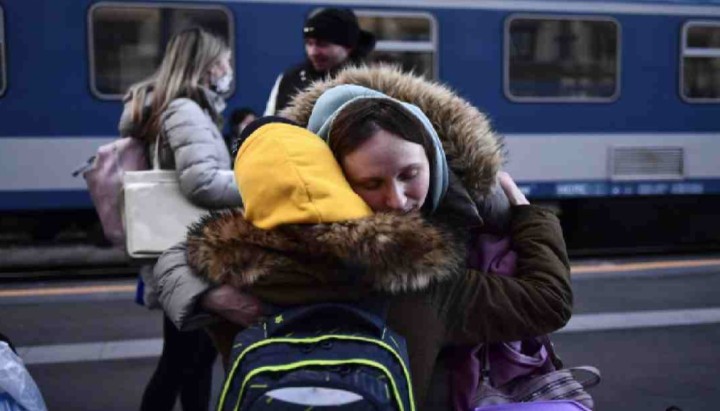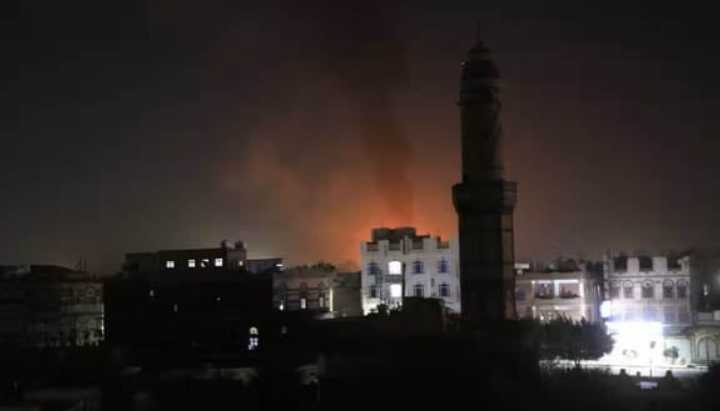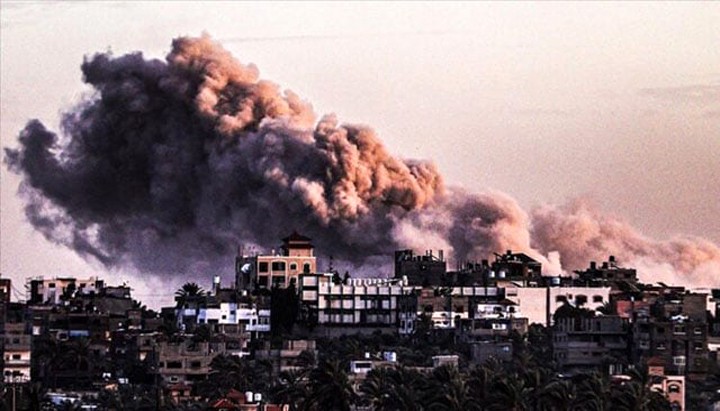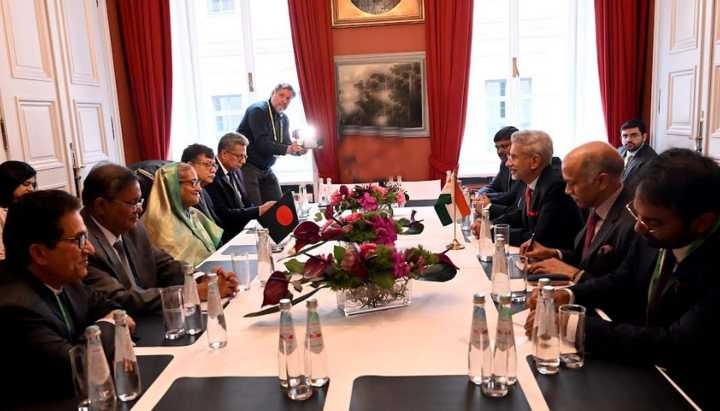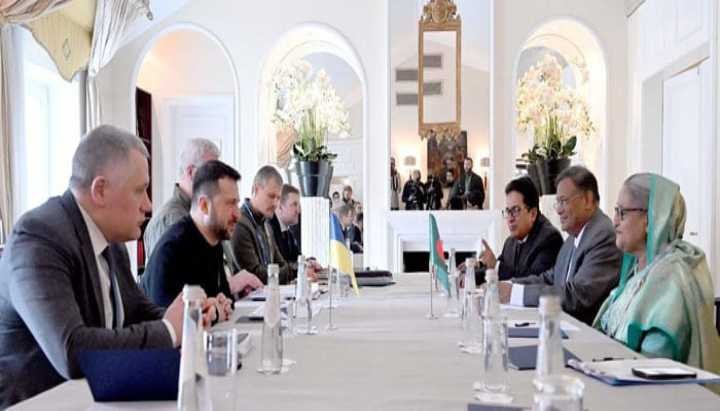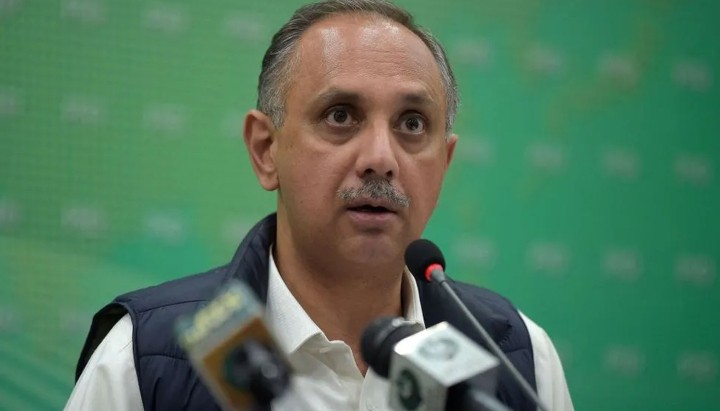The mass exodus of refugees from Ukraine to the eastern edge
of the European Union showed no signs of stopping Monday, with the U.N.
estimating more than 520,000 people have already escaped Russia's burgeoning
war against Ukraine.
Long lines of cars and buses were backed up at checkpoints
at the borders of Poland, Hungary, Slovakia, Romania and non-EU member Moldova.
Others crossed the borders on foot, dragging their possessions behind them.
Several hundred refugees were gathered at a temporary
reception center in the Hungarian border village of Beregsurany awaiting
transport to transit hubs, where they would be taken further into Hungary and
beyond.
Maria Pavlushko, 24, an information technology project manager
from Zhytomyr, 100 kilometers (60 miles) west of the Ukrainian capital, Kyiv,
said she was on a skiing holiday in the Carpathian Mountains when she got word
from home that Russia’s invasion had begun.
“My granny called me saying there is war in the city,” she
said.
Pavlushko plans to travel from Hungary to Poland, where her
mother lives. But her grandmother is still in Zhytomyr, she said, and her
father stayed behind to join the fight against the invading Russian forces sent
in by Vladimir Putin.
“I am proud about him,” she said. “A lot of my friends, a
lot of young boys are going ... to kill (the Russian soldiers).”
Many of the refugees in Beregsurany, as in other border
areas in Eastern Europe, are from India, Nigeria and other African countries,
and were working or studying in Ukraine when the war broke out.
Masroor Ahmed, a 22-year-old Indian medical student studying
in Ternopil in western Ukraine, came with 18 other Indian students to the
Hungarian border. He said they hoped to reach the capital of Budapest, where
India’s government has organized an evacuation flight for its citizens.
While Ternopil had not yet experienced violence when they
left: “It might be that there is bombing next hour, next month or next year. We
are not sure, that’s why we left that city.”
Hungary, in a turnaround from its long-standing opposition
to immigration and refusal to accept refugees from the Middle East, Africa and
Asia, has opened its borders to all refugees fleeing Ukraine, including
third-country nationals that can prove Ukrainian residency.
As part of an agreement with some foreign governments,
Hungary has set up a “humanitarian corridor” to escort non-Ukrainian nationals
from the border to airports in the city of Debrecen and the capital, Budapest.
Priscillia Vawa Zira, a Nigerian medical student in the
eastern Ukrainian city of Kharkiv, said she fled toward Hungary as the Russian
military commenced an assault.
“The situation was very terrible. You had to run because
explosions here and there every minute," she said.
U.N. High Commissioner for Refugees Filippo Grandi, speaking
by video to the U.N. Security Council, said more than 520,000 refugees had fled
Ukraine, a number he said “has been rising exponentially, hour after
hour."
The U.N. expects the total to reach 4 million in the coming
weeks, Grandi said.
In Poland, which has reported the most arrivals at more than
280,000, trains continued to bring refugees into the border town of Przemysl on
Monday. In winter coats to protect them against near-freezing temperatures,
many carried small suitcases as they exited the station.
Polish U.N. Ambassador Krzysztof Szczerski, speaking at the
General Assembly, said that in addition to Ukrainians, those coming in Monday
included people of some 125 nationalities, including Uzbeks, Nigerians,
Indians, Moroccans, Pakistanis, Afghans, Iranians, Iraqis, Turks and Algerians.
Otoman Adel Abid, a student from Iraq, fled to Poland from
the western Ukrainian city of Lviv after he said panic broke out among many in
the city.
“Everyone ran to buy some food and we heard bombs
everywhere,” he told The Associated Press. “After that we directly packed our
bag and clothes and some documents and we ran to the train station.”
Natalia Pivniuk, a young Ukrainian woman from Lviv,
described people crowding and pushing to get on the train, which she said was
“very scary, and dangerous physically and dangerous mentally.”
“People are under stress ... and when people are scared they
become egoist and forget about everything,” she said. “People are traumatized
because they were on that train.”
Maxime Guselnikov was leaving Poland to return to Ukraine to
take up arms against Russia, he said, adding that his wife and daughter are
still in Kyiv along with friends and colleagues.
“I return to Kyiv to fight,” he said. “The Russians came to
kill our brothers, soldiers, our children, mothers, sons. I go to take revenge
for it. I should react.”
Many of those fleeing Ukraine were traveling on to countries
further west.
Aksieniia Shtimmerman, 41, arrived with her four children in
Berlin Monday morning after a three-day journey from Kyiv.
Sitting on a bench inside the German capital’s main train
station, she attempted to decipher a leaflet with instructions and maps on how
to reach a shelter for new arrivals.
As she tried to comfort her crying 3-year-old twin boys,
Shtimmerman said she had worked in telecommunications at a Kyiv university but
was now only seeking a place where she and her children could eat, sleep and
rest.
“I grabbed my kids on Friday morning at 7 a.m. to run away
from the war,” Shtimmerman said. “I can’t even count anymore how many different
trains we took until we arrived here.”
Germany’s interior ministry said 1,800 refugees from Ukraine
had arrived by early Monday, but that the number was constantly growing as more
trains from Poland arrived.
In the Romanian town of Siret, the EU commissioner for home
affairs, Ylva Johansson, visited a border crossing where thousands of refugees
were entering from neighboring Ukraine.
Johansson, who visited some of the humanitarian stations at
the border, commended the “heartwarming” cooperation between volunteers and the
authorities, and said the EU is united “in a way we have never seen before.”
She said it was a “very difficult time where we see war in
Europe again, where we see aggression, invasion from Putin towards a sovereign,
neighboring country.”
Europe is “showing that we are based on other values than
Putin,” she said.
Source: UNB/AP


